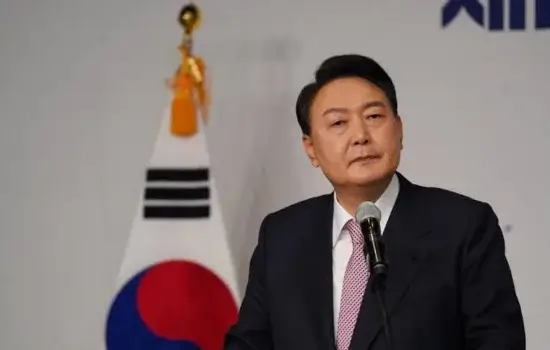In a historic move, South Korea’s National Assembly voted on December 14, 2024, to impeach President Yoon Suk Yeol following his controversial declaration of martial law earlier in the month. The impeachment motion passed with a decisive 204 to 85 vote, surpassing the required two-thirds majority in the 300-seat legislature.
Background: The Martial Law Declaration
On December 3, President Yoon declared martial law, citing the need to address alleged pro-North Korean elements and protect the constitutional order. This unprecedented move involved deploying armed troops to encircle the National Assembly, leading to significant public outcry and mass protests. Facing intense backlash, Yoon rescinded the martial law order just six hours later.
Impeachment Proceedings and Political Repercussions
The swift impeachment process reflects the gravity of the situation and the legislature’s response to what has been perceived as an overreach of executive power. Prime Minister Han Duck-soo has assumed the role of acting president during this period of political uncertainty. The Constitutional Court now has up to 180 days to deliberate and confirm the impeachment decision. If upheld, South Korea would be required to hold a presidential election within 60 days to elect a new leader.
Public Sentiment and Protests

The impeachment has been met with widespread public approval. Surveys indicate that over 90% of South Koreans supported the move to impeach President Yoon, with his approval ratings plummeting to 11% following the martial law declaration. Massive protests in Seoul, with approximately 200,000 participants, underscored the public’s demand for accountability and adherence to democratic principles.
International Reactions and Economic Implications
The United States has expressed support for South Korea’s democratic processes, emphasizing the importance of upholding democratic norms and the rule of law. In response to the political upheaval, South Korea’s Finance Ministry convened an emergency meeting to address potential economic ramifications and to ensure market stability amid the uncertainty. The Kospi index and the Korean won have experienced volatility, reflecting investor concerns over the nation’s political landscape.
Potential Legal Consequences for President Yoon
While President Yoon retains presidential immunity from criminal prosecution during the impeachment process, there are ongoing criminal investigations against him and several cabinet members. If the Constitutional Court upholds the impeachment, Yoon could face legal proceedings, including charges related to insurrection, which carry severe penalties under South Korean law.
Conclusion
South Korea now stands at a critical juncture, navigating the complexities of a leadership transition amid significant political and social upheaval. The impeachment of President Yoon Suk Yeol underscores the resilience of South Korea’s democratic institutions and the populace’s commitment to upholding constitutional governance. As the nation awaits the Constitutional Court’s decision, the focus remains on maintaining stability and ensuring that the principles of democracy are preserved.

